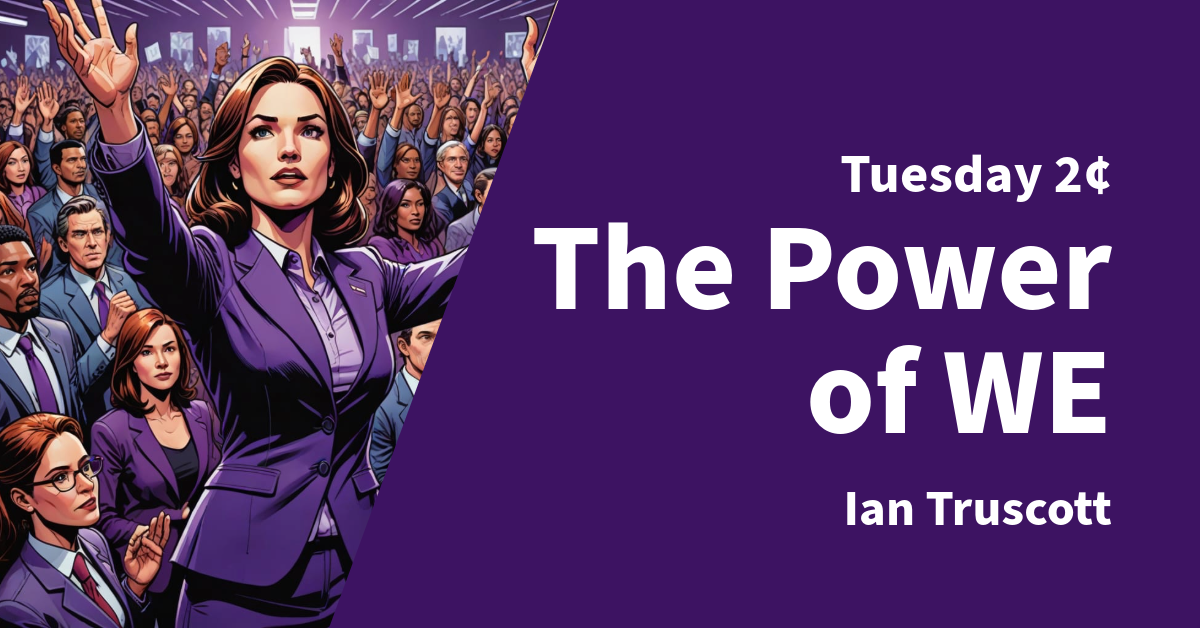Tuesday 2¢ - The Power of WE
This week, as I shockingly identify as a marketer, who is your "we"? And who is your audience's "we"?

This week, as I shockingly identify as a marketer, who is your "we"? And who is your audience's "we"?
I was just on my walk listening to a podcast, one that I have on rotation - Pivot by Scott Galloway and Kara Swisher. It’s not ostensibly a political show, but they both voted Democrat and are pretty vociferous about what is happening with the current administration and how it’s impacting tech, marketing, and business.
Nothing especially of note here, as I’ve talked about before, politics, especially in the US, is seeping into everything, and plenty of my chums, online commentators, and my network share their opinion.
What struck me here was the word “we”.
Both hosts identified themselves with their chosen political party as “we” - as in "what should we [democrats] be doing about this”.
Yet neither of them is a politician or an actual representative.
This might be a troubling indication of how divisive things are in the US right now, but here in the UK, unless you are an actual member of the party, part of the political machine or an activist, it’s rare for a regular citizen to identify with who we vote for quite so strongly. Especially people in the media, even if the colors on their mast are implied.
Unless things get really fucked up, and then we might say we [the people] as we rise up against the violence inherent in the system (a little Monty Python there).
Perhaps this is not as common a phenomenon in the US as it seems, given my small survey size, and there may be people here who describe their relationship with whoever they voted for as “we”.
But, I don’t think it forms such a strong part of our identity, certainly not to the point we would make statements on behalf of the collective.
Exploring our relationship with politics is probably really interesting, but not the purpose of this short post; it was more about thinking that when we say “we” it is significant.
When we feel so connected to a group, tribe, or community that we identify with the other people like us as “we”.
I say that about marketers, writing this regular post, I say “we” or “us” meaning marketers. In a paragraph above, I referred to "we" as people from the UK.
Me identifying as a marketer in that way is clearly a signal that it’s not just what I do, it is, in many instances, a bit of who I am.
The lesson for us (marketers - see what I did there) is that if we can tap into what folks consider themselves to be a part of so strongly, they say “we” or “us”, this is way more powerful than knowing a job title or some other persona attribute.
Even better if they consider whatever community you are building around your category, product, or service as “us” or “we”.
What group of people would you say “we” about?
What group of people does your audience say “we” about?
What community are you building that you'd like them to say "we" about?